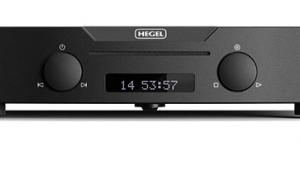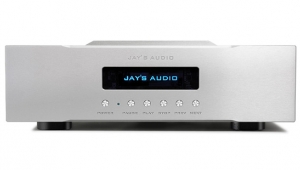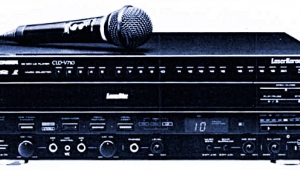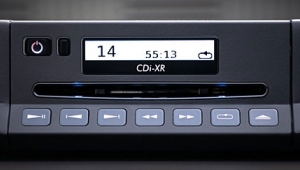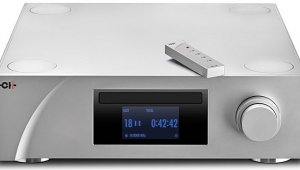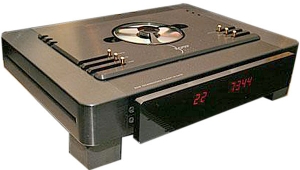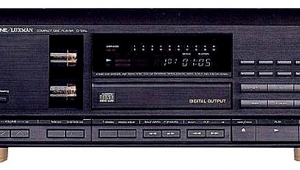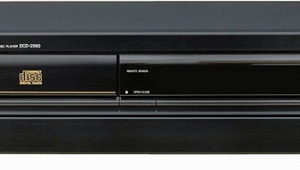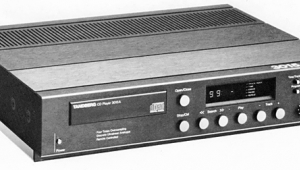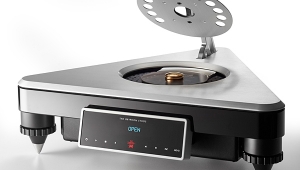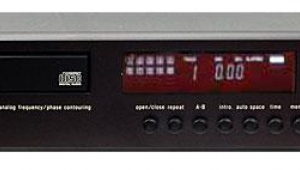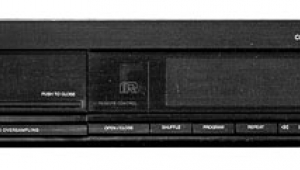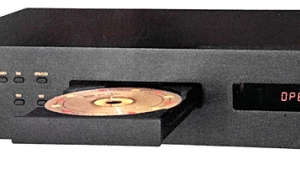| Columns Retired Columns & Blogs |
Linn Majik CD player Page 2
The Majik had the driest, tightest, clearest, most explicit bottom end I've heard from a CD player in ages. On "Nashville West," from the Byrds' Live at the Fillmore (Columbia/Legacy CK 65910), I noticed for the first time that Roger McGuinn wasn't just lightly strumming chords on his electric 12-string guitar (as I'd always thought), but instead adding a steady stream of bass runs on his instrument's lower strings, as counterpoint to Clarence White's own steel-guitar bends. And each note in John Paul Jones' pedal-bass part in "Since I've Been Loving You," from Led Zeppelin III (Atlantic A2-19128), had fine pitch definition, along with believable—and satisfyingly deep and resonant—tone.
That last quality carried over to classical material, of course: In Gregor Piatigorsky's recording of the Dvorák Cello Concerto with Charles Munch and the Boston Symphony (JVC JMCXR-0014), the solo horn that precedes the solo cello's entrance had wonderful richness and bloom—by bloom I mean that the attack component of each note was closely followed by a timbrally "larger" and more complex sustain component—yet pitch certainty was unsurpassed. Piatigorsky's own entrance was no less riveting, especially that first succession of double-stops, which mixed perfect pitch with the right amount of "scrape" and, again, a nice timbral stretching-out of each note.
Pacing and momentum were excellent. The modal Viking stomp of "Immigrant Song," from the aforementioned Led Zep album, was sharply nuanced and involving—and fun! At the other end of the spectrum, Dolly Parton's downright ingenious arrangement of Bill Monroe's "Cry, Cry Darling," from the Big Mon compilation (Skaggs Family SKFR CD 1002), came across very nicely: a moderately slow waltz that didn't bog down.
One snowy afternoon I had it all figured out. After listening to my current favorite recording of Strauss's Also sprach Zarathustra, by Serge Koussevitzky and the Boston Symphony ca 1935 (Biddulph WHL 054), I heard myself say out loud, "Brilliant." When I did, I realized that I'd said the same thing after every CD I'd played that day—all of which I'd listened to from start to finish, whether or not I'd meant to.
That sums it up: Weeks after installing it in my system, I have yet to find a single disc that didn't sound entertaining, involving, and convincing through the Linn Majik.
The decider
How would the Majik stack up against other, similarly priced CD players? I didn't have an Ayre CX-7e ($2950) on hand for direct comparison, but I think that might be a tough call. Both the Linn and the Ayre are fine all-arounders: tuneful and pacey, with sonic presentations that are spatially open and tonally neutral.
In a direct comparison with the Naim CD5x ($2950), the Majik was airier and more open; the Naim's chunkier sound gave it a more insistent way with rock music, which may be to some listeners' taste—yet I think the Linn sounded consistently more accurate.
The most interesting comparison of all may have been between the Linn and the Linn: the Majik CD and the Unidisk SC. I admire the Unidisk's sound on regular CDs—and, of course, it performs brilliantly well on DSD and DVD-Audio material, which the Majik can't play at all. But the Majik sounded more substantial and more colorful on disc after disc; the sound of the Unidisk SC was slightly more wraithlike in comparison. Call it a choice between A+ "Red Book" performance on the one hand, and grade-A "Red Book" plus DSD and DVD-A on the other. It's a choice that I would find daunting.
Musical Fidelity's two-box kW DM 25 ($6500) had a little more drama, 47 Laboratory's two-box Shigaraki combo ($3460) had marginally better flow (though less cleanness, openness, and musical precision), and dCS's two-box Verdi–La Scala combo ($14,995) had a little more of everything except, perhaps, texture. The dCS sounded a little too smooth sometimes.
The combination of a Wavelength Brick D/A converter ($1750) and a Mac mini full of downloads and burns was competitive in the here and now...and had the prospect of a remarkable future!
Conclusions
I'm paid to be a good judge of sound, but as the comings and goings in my own system would suggest, I'm a rather poor judge of what may or may not satisfy a music lover in the long run—so I'm learning not to try. That said, I believe the Linn Majik CD player deserves special consideration by any shopper who needs a new source and whose budget can accommodate it. Its performance is brilliant, and it offers a generally high level of value for the money. To suggest that its manufacturer has a reputation for product longevity seems like a bit of an understatement.
The Linn Majik CD player delivered musical and sonic performance that was superb—no other word for it. Once again, here's a Linn that can only improve the majority of systems into which it's placed. Funny how things don't change.
- Log in or register to post comments
